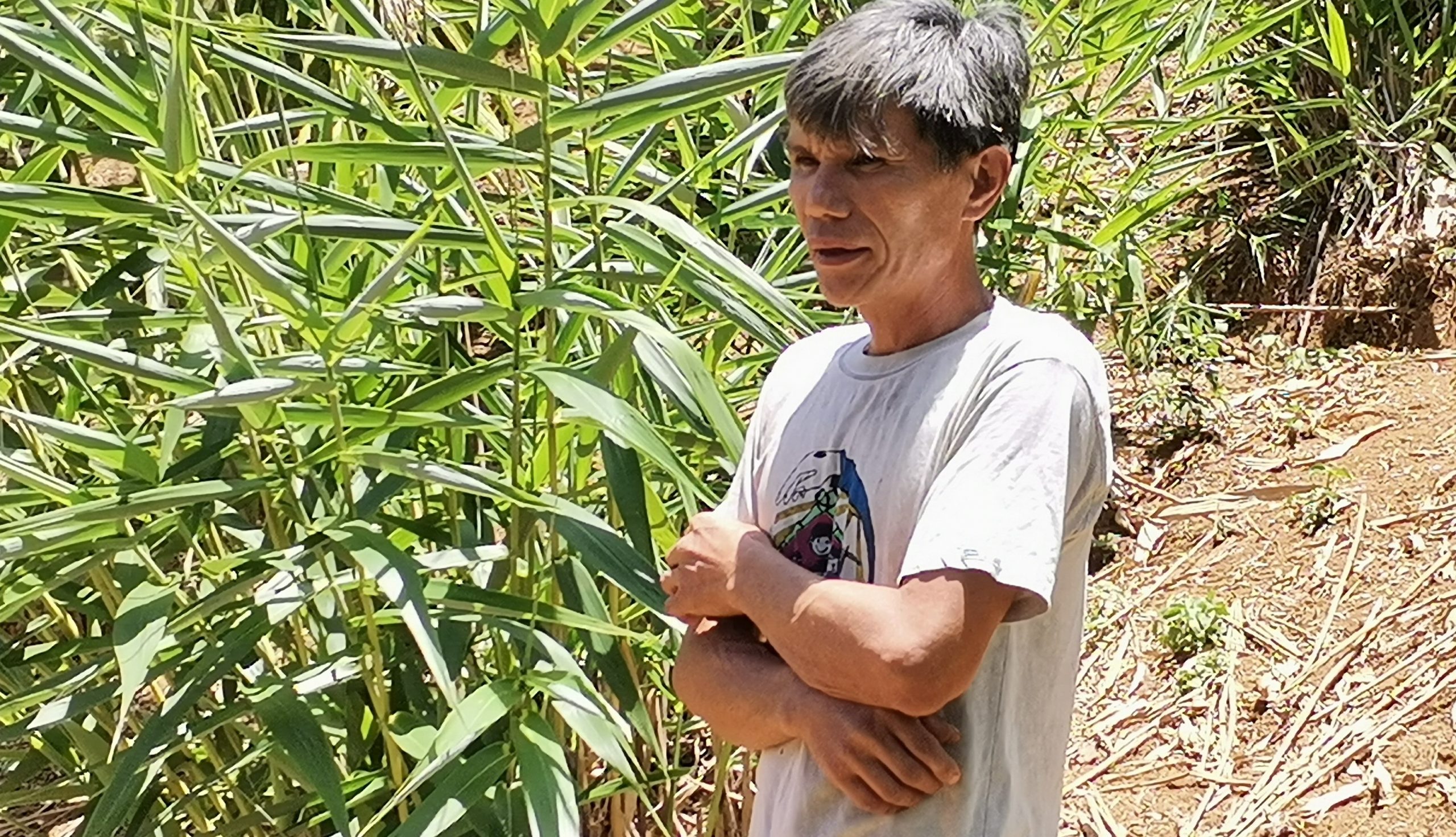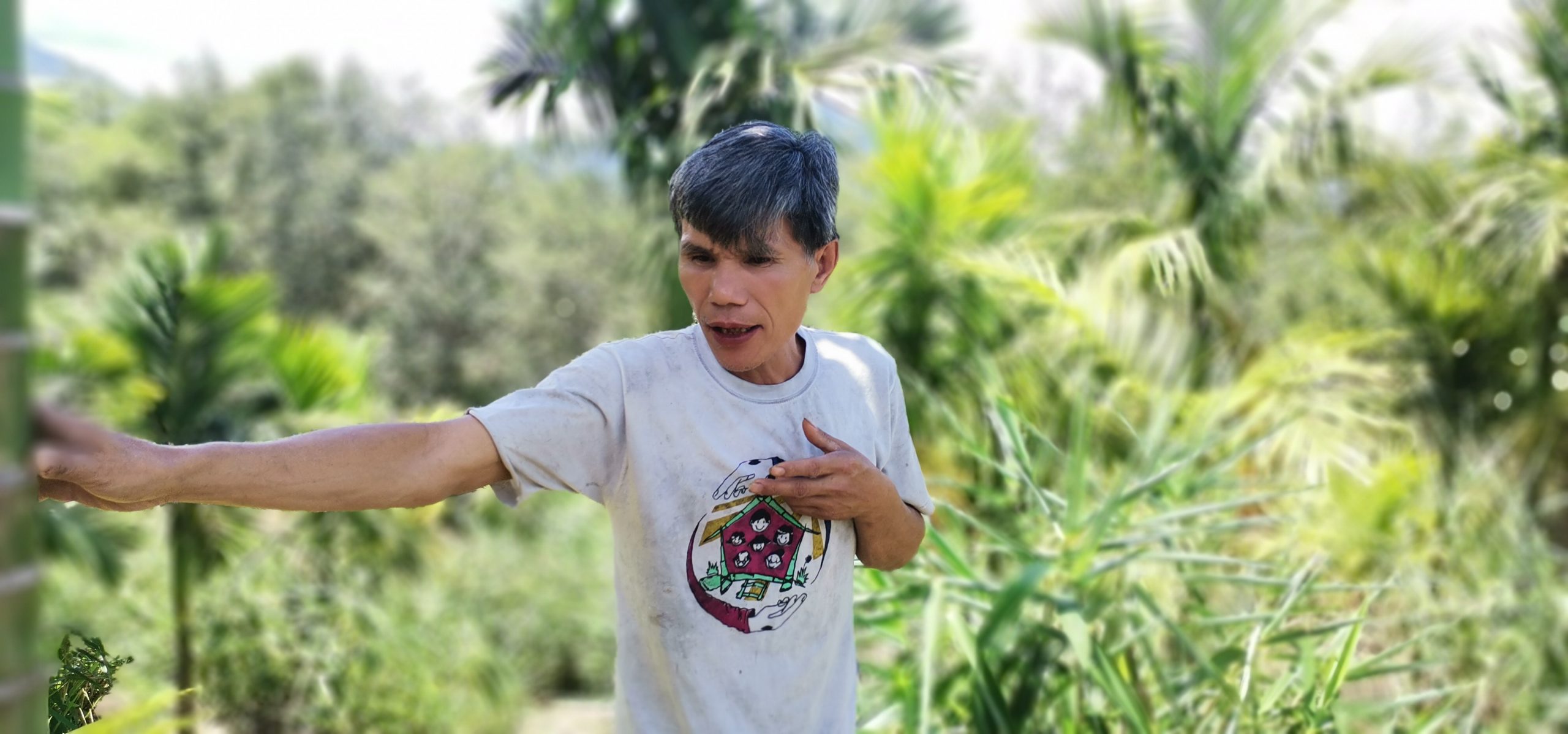Broom-making through tiger grass in a highland town of Mountain Province has proven to be both profitable and beneficial in preserving indigenous products. Village elders in Pudo, Nationin also regard tiger grass as guardian of the soil as it serves as hedgerows to minimize soil runoff, especially in upland gardens.
Tiger grass (Thysanolaena latifolia), a self-supporting growth form, is a bamboo-like perennial grass, growing up to 1.5-2 meters tall, forming large clumps. Stems are tied with simple broadleaves of up to 7 cm wide which are used to wrap food for steaming. Flowers occur in minute spikelets in large branched clusters and utilized to produce brooms.
In an interview with the barangay officials and Pudo Farmers Organization (PFO), soft broom-making started in the mid-1900s as tiger grass is endemic in the municipality of Natonin. Back then, it grew along the Pap-arong River located north of the barangay, yielding a small production good enough for the community’s needs.
As the demand increased, the community had to outsource tiger grass panicles from Sablan, Benguet. However, due to its far-flung source, supplies arrive late and quality depreciates resulting in low germination, and affecting timely planting.
In the beginning
Encouraged to address the issue, Bert Bagtang, a contemporary cultivator of tiger grass and one of the 110 members of PFO started to plant five seedlings in 2010. Every after two years from 2012, he propagated tiger grass by transplanting suckers from the mother plant until he established a one-hectare plantation with 500 clumps of tiger grass intercropped with 100 betel nut trees in 2018.
The tiger grass is harvested once a year from February to March. Despite this, harvest was still not enough to meet market demand until the arrival of the Special Area for Agricultural Development (SAAD) Program.
“Permi ti ragsak ken pasalamat mi idi nakita ken sinuportaran ti SAAD daytoy mula me ta dakkel daytoy nga magapwan ti panagbiyag me (We were very happy and thankful when SAAD saw and supported our tiger grass because this is the major source of our livelihood),” said Mr. Bagtang.
Mr. Bagtang along with members of the PFO implemented a tiger grass production project in 2019. The project package amounting to Php 1.9 million included 5,000 tiger grass seedlings for 1 hectare (ha) plantation, 110 brush cutters, 110 bolos, 110 shovels, 110grab hoes, 110 rakes, 220 plastic crates, and a package of training.
The SAAD project is the first national government program to support the livelihood and indigenous product of the community and has motivated locals to revive and propagate tiger grass in the area.
Project implementation
In 2019, some PFO farmers had a 30% tiger grass mortality equivalent to 1,500 seedlings. With determination to pursue the project, Mr. Bagtang volunteered to give the affected beneficiaries 300 seedlings as free replacement.
“Inted ko jay seedlings nga libre tapno ada pagrugyan da ken makatulongak ta kasjay ti ikastan ti organisasyon (I gave the seedlings for free for them to have something to start with, and so that I can help because this is what organizations do),” Mr. Bagtang shared.
For the past nine years, Mr. Bagtang incurred losses and minimal gain every harvest season. Labor costs ate most of his income, making him desperate and almost hopeless.
Optimism glimmered when he received the SAAD interventions of a brush cutter, bolo, a rake, a grub hoe, a shovel, and two crates. These materials are useful for site preparation, planting, and maintenance activities.
Key results
With the supplemental farming materials delivered by the Program, the 45 days Mr. Bagtang spends yearly to weed his plantation was trimmed to 9 days while the 20 days of labor in planting 500 seedlings was shortened to 8 days.
He also used the crates as containers for the tiger grass spikelets and betel nuts. Before SAAD, he propagates an average of 200 seedlings every two years. With the interventions, he was able to propagate 1,000 tiger grass in 2020 in addition to the 500 clumps he had in 2018, totaling 1,500 clumps of tiger grass at present.
Before the DA-SAAD, Mr. Bagtang earn an average of Php 12,000 yearly income (Table 1) as computed from his 2016 to 2019 recorded sales.
Table 1. Mr. Bagtang’s Income from 2016-2019

When the SAAD Program provided the interventions, Mr. Bagtang’s yearly income from tiger grass production and broom-making increased at least ninefold. He can now earn an average yearly income of Php 197,000 (Table 2).
Table 2. Mr. Bagtang’s Income from 2020-2021

The technique Mr. Bagtang learned in the SAAD training conducted on September 24, 2019 played a crucial role in increasing his tiger grass yield.
The training, discussed by Natonin Municipal Agriculturist Arnold Timmangao, included topics on advanced stock and soft broom production, appropriate hauling and planting, proper care and maintenance, and innovative marketing strategies.
Likewise, the pest and disease management taught by SAAD staff helped Mr. Bagtang prevent and minimize the spread of diseases infecting his plantation.
After every harvest, he promptly cuts down the vegetative parts of the tiger grass to hasten regeneration, allowing the cut portions to decompose as soil nourishments. Every morning, he goes around and checks each clump for any signs of disease and trims them down.
Committed to sustaining the project, he complies with the PFO policy mandating all members to replace mortalities to increase tiger grass production. Also, the long-cherished customary practice of the place aided in sustaining the project. This is to give some tiger grass seedlings to a community member after every harvest, as a way of sharing their blessings and giving gratitude to God for a bountiful harvest.
The tiger grass production resulted in soft broom-making as a community-based enterprise. The desired project impact was evident by the progress of Mr. Bagtang and most members of the organization’s amplified farm productivity and growth in sales resulting in increased income.
Since most in the community are engaged in the project, the market linkage was an anticipated challenge. To avoid competition, he persistently advertised in advance to his relatives and friends until an entrepreneur in Baguio City Public Market purchased a bulk of his soft brooms while the panicles were bought by the armed forces stationed in the vicinity.
To strengthen the competitiveness of the indigenous product, skillful techniques were applied to the soft brooms. He uses only indigenous raw materials to maintain the quality and preserve the authenticity of their product.
The different parts of the soft broom such as handles, shafts, and the brush cup are knotted and secured with rattan, making it sturdy. Recently, innovative decorations with split rattan were skillfully designed on the soft broom handles indicating the origin of the product. With the improved production and high-end quality, the soft brooms in Pudo grabbed a notable market locally.
Plans
Mr. Bagtang is now focused on expanding and enhancing the tiger grass production and soft broom industry. He started by giving free seedlings to his village mates and plans to donate seedlings to the Sangguniang Kabataan and barangay officials for their planting activity. He envisions working with his group to establish a linkage to the major players in the handicraft industry and general merchandise to establish a steady market for their product.
For further improvement, Mr. Bagtang and PFO plan to undergo training on soft broom design. He aspires to learn about the other uses of tiger grass and desires to acquire mechanized farm facilities to further develop the industry. ###
Writer: Elizabeth C. Atiteo, Planning Officer, SAAD Mountain Province






This Post Has 0 Comments